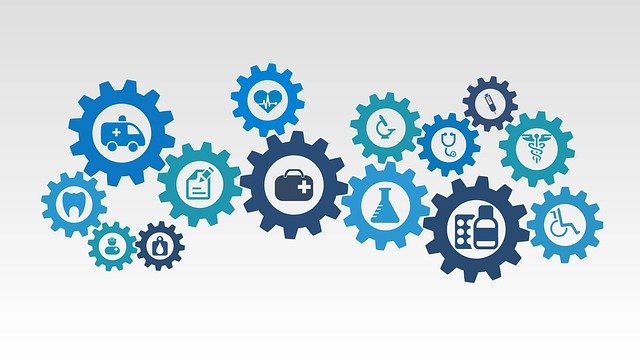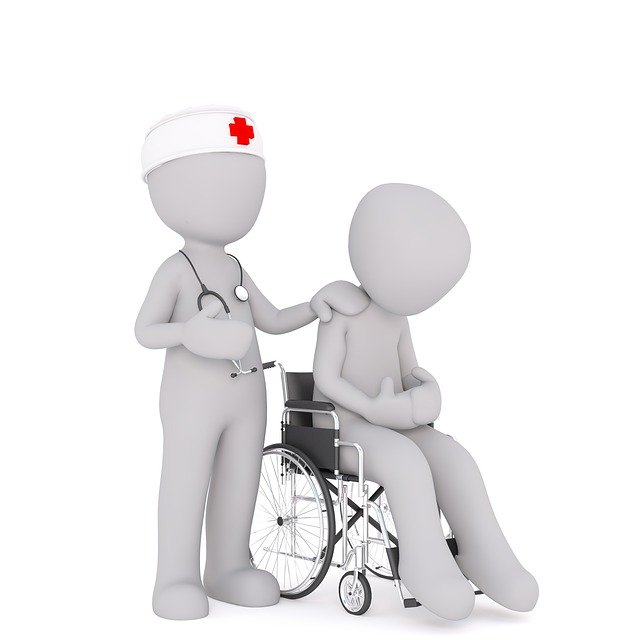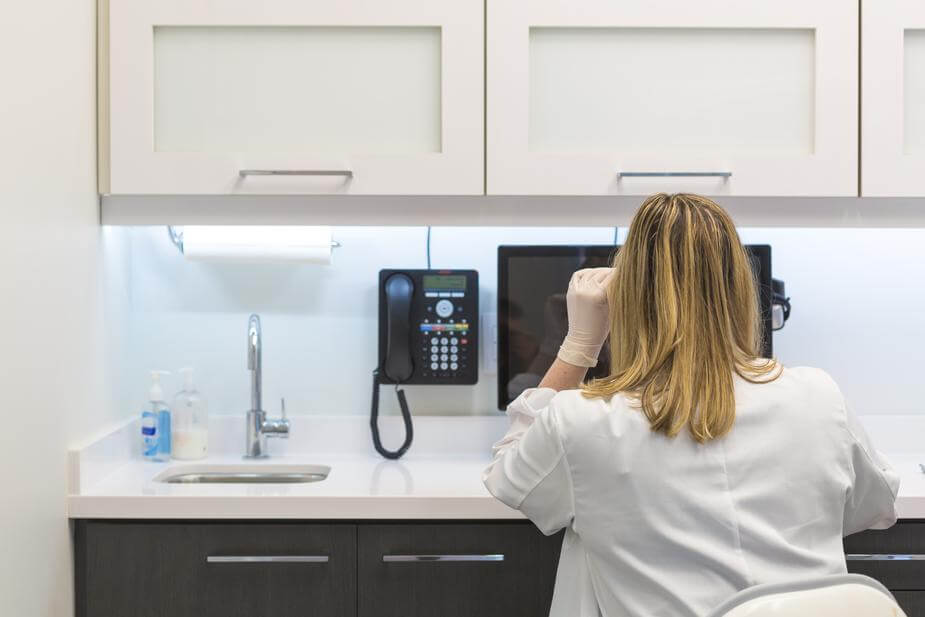Toward Better Help from Health Care
How can people get help from a health care system too focused on itself?
Have you ever felt lost or like you didn’t know what was going on during a health care appointment?
Or after a medical visit, have you ever felt confused about what your diagnosis meant? Or what exactly you should know or do about it?
Maybe you can recall an even more unpleasant result of a health care experience. Perhaps there was an improper or missed diagnosis, unnecessary or harmful procedure, or worse. Or you may just think the cost of services is too high.
If so, you are not alone in your dissatisfaction with health care in the United States. A 2007 study found that 34% of Americans think the entire health care system should be rebuilt.

A huge factor contributing to health care problems in the U.S. is that almost 90% of American adults have inadequate understanding of health-related topics (health literacy). Yet many argue the main problem is that the health care system does not consistently live up to its primary obligation: To help people who need care of their health.
The story of a broken arm
A personal account of a failed hospital stay may be a good way to begin the discussion of the current state of health care in the U.S. It is an example of how aspects of the system can actually impede good care.
About ten years ago, my oldest son, Dane, had a snowboarding accident. When I picked him up at the ski hill that day, his right arm was deformed and he was basically writhing in pain. I realized that even if his injury could wait till morning for care, it was inhumane to make him suffer all night at home.

At the local ER, an X-ray showed Dane’s arm was broken so badly it needed surgery, which was then scheduled for the following morning. Dane and I were relieved his provider decided to admit him to the pediatric unit overnight for pain control. Dane’s father came to spend the night with him so I could go home to care for our other children and return early the next day.
No relief during the night
When I arrived at the hospital in the morning prior to surgery, I found Dane and his nurse in the bathroom. He was whimpering in pain as his nurse tried to get him to “go.” It was a terrible, unexpected scene.
I helped Dane back to bed and asked him how long he was hurting like that. He said, “Pretty much the whole night.” Stunned, I then asked the nurse when was the last time he received pain medication.
“Let me look,” said his overnight nurse. “Oh, I guess he hasn’t had anything since he was in the ER last night.”
A system intended to help
What went wrong during Dane’s hospital stay? Did the nurse forget about him? Was she too busy to care for him?
We’ll return to Dane’s story in a minute, but first, let’s consider some useful background information about the “system.”
What do nurses do?
We’ll begin with a brief overview of a nurse’s role on a hospital unit. Most are familiar with common nursing tasks: help with patient needs and medications, keep the patient safe, track if there is a change in the patient’s condition in order to take quick action, and so on.

Surely, direct patient care is the desired priority of almost every nurse. And it is a primary source of a nurse’s job satisfaction. This is especially true when the action a nurse takes makes a real difference in the care of the patient.
However, only a portion of a nurse’s time at work is spent in direct patient care. A recent study showed nurses on a typical medical hospital unit spend, per hour, an average of 12.6 minutes in direct patient care, but 19.2 minutes on electronic devices. How can this be?
“If you didn’t chart it, you didn’t do it.”
Those not employed in a patient care setting may be surprised by how much time health care staff devote to documentation and “paperwork.” Yet, in nursing, as is true of many roles in the medical field, a well-known adage is the rule: “If you didn’t chart it (enter it into the electronic medical record), you didn’t do it.” The idea behind the expression is that, whatever the task, it isn’t valid unless it is “charted,” or documented in the EMR (electronic medical record).

Charting is an important part of the hospital visit for many reasons. One such reason is because, to be effective, the care team must provide services in a cooperative and informed manner. This complex process, called “continuity of care,” requires accurate and timely documentation. What this means to a nurse is that, with almost no exception, record-keeping in the EMR (assessments, medications administered, care performed, etc.) must be complete by the end of the shift.
Intuitively, a system that utilizes good record-keeping seems like a good thing. Yet, we will see how a faulty system or improper use of it actually interferes with good patient care.
When the system becomes the priority
Although documentation is a crucial part of the health care process, when an EMR or work system is too demanding and complex, it actually competes with the patient for attention. Not only are EMR requirements often time-consuming, caregiver focus can change from use of the system to help the patient to use of the system to fulfill its own demands.

Researchers also found that improper focus on the EMR diminishes its usefulness and increases the risk of provider negligence. One of the reasons for this shift toward poor care is that satisfaction of the system’s demands can make it appear as though work and patient care are complete. However, evidence shows this task-oriented focus is actually at odds with patient-centered care.
Patient care comes in second
Unfortunately, nurses are not immune to system problems and difficulty prioritizing vigilant patient care. After all, as we have already discussed, the system demands the nurse to complete documentation on time.
But, because so much emphasis is placed on charting, it can become the undue focus of the nurse. And, such documentation often does not reflect lapses in patient care, comfort, and safety. Sadly, the result too often is that what is documented in the chart does not coincide with the patient’s reality.
What about Dane?
Back to Dane and his story. Did his nurse take good care of him? Because her charting needed to be complete by the end of the shift, the EMR likely showed she did everything she was supposed to do. The system was satisfied.
Yet, for whatever reason, the nurse did not address Dane’s actual, present needs. Instead, she allowed him to suffer during the night and on into the morning. In her neglect, she failed to do the one thing that would fulfill the entire purpose of his care: control his pain. The result was a pointless (and expensive) hospital stay, and for Dane, a night of needless agony.
In Dane’s example, his nurse satisfied the system with her documentation, making it appear as though her work was complete. However, the system did not ensure that Dane’s care was the priority of his stay.
Had I not spoken up to advocate for my son, it is unlikely anyone would have noticed the lapse in care, and the completely ineffective role the system played in it. I could (and did!) argue that he would have been more comfortable at home.
How we will try to help
The purpose of considering Dane’s example is not to fully address any particular point of discussion. However, we hope it will spark more conversation about ways the system can change. Meanwhile, people can benefit from knowing how the system works and how to advocate for themselves.

At IllumiMed, our education platform’s motto is: “Medical knowledge belongs to everyone.” Our primary purpose is to shed light on information that will help users of health care. Though some posts on IllumiMed.health will be blog-like, many will be presented as education topics. Generally, these will serve to meet one of the goals listed below.
Our goals
- Help increase accurate health knowledge and understanding (health literacy) for individuals. For example, “Why do my ears pop when I swallow?” or “Why is my sore throat so much worse in the morning?” are some topics we hope will interest our readers.
- Help users of health care to be informed. Whether it is understanding the role of the provider you see (“What is the difference between an NP and a PA, anyway?”) or how to obtain better answers to your questions at medical appointments, we want to help you get the most out of the system.
- Address some of the problems facing the health care industry. We will do our best to illuminate industry problems and how they affect those who use health care.
Though the intent is not to put forth information in a scholarly manner, we will make every effort to use evidence to support the topics we discuss. Reference links can be accessed where highlighted. We will also share insights gleaned from decades of industry know-how and from experience in health care education.
IllumiMed launch
IllumiMed is launching now, in November of 2020, during one of the most devastating worldwide health events on record (the COVID pandemic). We hope the timing is right to bring some clarity and help to even a few people. As the list of topics grows, we want to address those most important to our readers and so welcome suggestions for future topics.
Thank you for your interest! May we all pursue health to the extent we are able.
—Carissa Arens, MSN, APRN, CNP, founder, IllumiMed LLC

ADD A COMMENT
November 29, 2020
Leave a Reply
Sign up for all of the well-researched medical knowledge we can convey as fast as we can type (and that's pretty fast!).
Don't miss a single thing.
JOin our list
Are you in need of non-emergency,
no-cost health services?
YES
(Opens new window to schedule)
NO
(Closes this popup)
(Minnesota residents only)

What a timely resource for the public that is not system biased, not an “ask a nurse” option sponsored by a healthcare organization. Knowing her personally and professionally I’m certain Carrissa’s team will provide you with the research based knowledge you need and that you can trust.
Bravo to your innovative approach in addressing and providing this support.
Sincere thanks, Dagny! It’s a team effort. You and me and all of the other providers who want to make a difference!